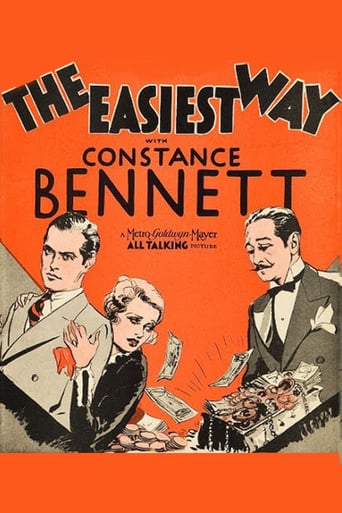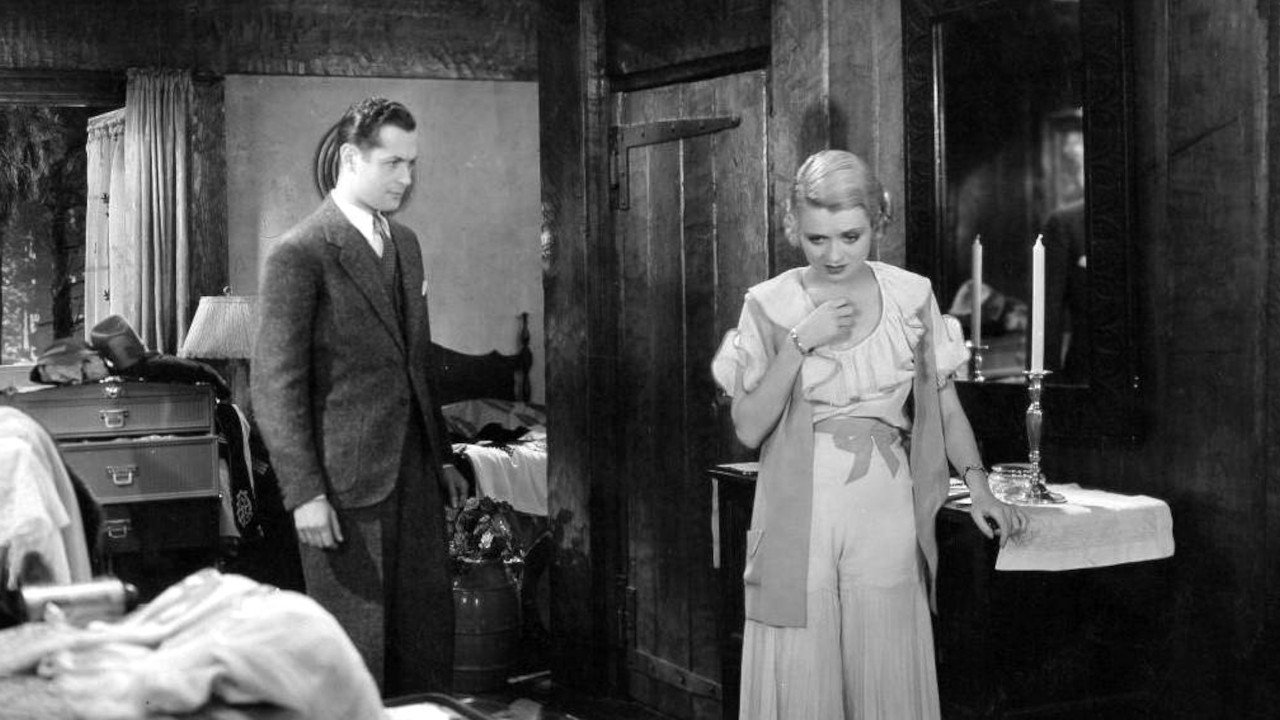deltascorch90
The initial sequences of this film, and indeed a good portion of it otherwise, are arranged in such a way that truly evokes the environment of the time period, with the beginning shots capturing the squalorous destitution of the family home, and the amusing shot in particular of the family eating breakfast while the camera remains idle, focusing on their activity-- that's the type of stuff which I love. As others have stated; as the year implies; as I no doubt need to mention-- this is a Pre-Code film. Unlike films made later in this very same decade that have been rigorously codified and placed into the upper echelons of Golden Age fantasy and whimsy, this is one of those films that truly captures the gritty reality of the Great Depression, and which keeps all the trimmings in the process. What I find most interesting about this films is indeed the reality which they offer, which is something that goes to foreshadow the development of the sitcom; and indeed to watch a Pre-Code is exactly like to watch a modern sitcom (or at least one of the more classic sitcoms before that genre itself became overdone). At any rate, this film in particular really caused me to question the cultural in the given period of time; Art, after all, is a habit which reflects the mindset and mores of a given place, and therefore I'm brought to wonder concerning how much women of 1931 could relate to those in this film. To what extent is the normal woman living in destitution, blessed perhaps with supreme feminine charm, faced with such conflicts as are portrayed in this film-- I mean of course in 1931. Surely what the overwhelming majority of these Pre-Code films leads me to understand is that showbusiness and all other methods in which the female body can be exploited for a profit are things which women of this time are flocking to, at the expense of what is held to be traditional morality. Though with Art being a lens into a period of time, as above mentioned, I continued throughout this film to wonder as to how widespread the morality-for-riches tradeoff occurred actually. As far as a take-away message goes, this film in my opinion posits the existence of two classes-- one exuberantly rich, and one exorbitantly poor; conflict occurs, the film says, when people don't mind their class, and by this I mean that if the poor and destitute remained poor and destitute yet endured their struggle, they will find their due happiness in time. Similarly, if the rich abide by their own class, herein represented by Adolphe Menjou's character, then they too will find their due pleasure in life. Menjou always in my viewings perpetuates the same character: he is rich and sophisticated yet takes an interest in the exact type of woman that can never love him. Therefore, to betray your own class is akin to masochism: let the rich inhabit a romance with the rich, and the poor with the poor, for love cannot exist in any way befitting if these lines are crossed. I have not at all provided a synopsis of this film, since it is well documented by others and on websites, yet I have not rated its quality: to that end, to wit, this is a wonderful Pre-Code film enshrouded in MGM's spectacular production films, with a visual sheen and gloss that is pleasing to the eye. I encourage all with an interest for this period, or any of the factors above mentioned, to view it.
cbryce59
wearing a fox fur wrap complete with head.Shop girl Laura from poor family catches the eye of a rich ad executive and is soon doing more than modeling for him. We see her being gifted with jewels, an apartment, clothing, cars.Her sister's husband gives her the righteous speech, calling her a "woman like you." There's one in every picture, even in this pre-code film.Constance is beautiful as always and wears clothes better than anyone else of her time.Off she goes to Colorado with her boss/lover and attends a very strange picnic where she meets Robert Montgomery. A whole pig (poor thing) spins over a pit while a Native in long braids is seen wandering around. She and Robert M. spend some time at the shore of a dubious-looking river bed, and ride horses together, while he makes pretty speeches. And then he proposes marriage.Laura is in love; she breaks off with her rich lover, but soon finds herself in dire straights. In the end, she has to choose-the poor life with the man she loves, or comfort and security with the rich lover.
bkoganbing
As sound and dialog came to films the Broadway stage became more and more a source for movie properties even if they had to go back considerable ways for material. The Easiest Way was a play written by James Walter and produced by that eminent showman David Belasco first in 1909. It was most typical of the Edwardian era morality works that Belasco so favored.It could never be done today, in fact it was barely acceptable in 1931 for its incredibly anti-feminist stand. According to the character played by Marjorie Rambeau men rule, make said rules, and women just have to deal with it. Submit cheerfully to being wives and mothers with some occasional outside work if you can fit it in.Constance Bennett with her small job in a department store doesn't think this is all that's for her. She help supports her parents J. Farrell MacDonald and Clara Blandick and a couple of small brothers. Sister Anita Page is getting ready to marry honest laundry man Clark Gable who has some most chauvinistic views about women, but also about the value of honesty and hard work. So when advertising executive Adolphe Menjou suggest to Bennett that they shack up, she's ready to take The Easiest Way and go for a life of luxury. That is until she meets newspaperman Robert Montgomery who's ready to marry her once he gets back from a long assignment in Argentina. Without going into details Bennett makes a holy hash of her life and those tried and true standards of the time for women serve as a lesson to her and all in the audience. Be good wives and mothers and don't take The Easiest Way to prosperity.The original play only had six characters and so it was expanded considerably at MGM and updated to Depression times where such lessons were not completely appreciated. Still this cast did manage to put it over.The Easiest Way was the first film at MGM for Clark Gable who was billed eighth down in the cast. By the end of the decade Gable was acknowledged King of Hollywood before Elvis was known as the King. Nearly all the players billed above him would be below him in cast lists in the future. His appeal on the screen was immediately discernible and in the end of this film, he's given a bit of humanity and shown as not the blue nose stinker you might originally have thought him to be. The Easiest Way is way old fashioned for today, I doubt too many stock companies do the original play today. Still some will find it a curiosity and Gable is always good to watch.
drednm
Wonderful story ruined by Hays Office has fabulous Constance Bennett escaping her New York slum upbringing by becoming a model and mistress to Adolphe Menjou. All is well until she runs into reporter Robert Montgomery in Colorado Springs (the Wild West in 1931). He's off to South America and asks Bennett to be good and wait for him. Well that lasts about a month. She runs out of money and goes back to Menjou. Better than it sounds until the hack ending. Solid performances by the stars, especially Bennett, and ably supported by Anita Page, Marjorie Rambeau, Clark Gable (his first MGM film), J. Farrell MacDonald, Clara Blandick, Jack Hanlon (as the sullen brother), and Hedda Hopper. The opening tenement scene is just wonderful. Gable is dynamic is his first big part. Rambeau is always terrific. Page is quite good in a supporting role. Menjou is slimy, but Constance Bennett is front and center and mesmerizing. She was a major star of her time--too bad she's mostly forgotten now.


 AD
AD


